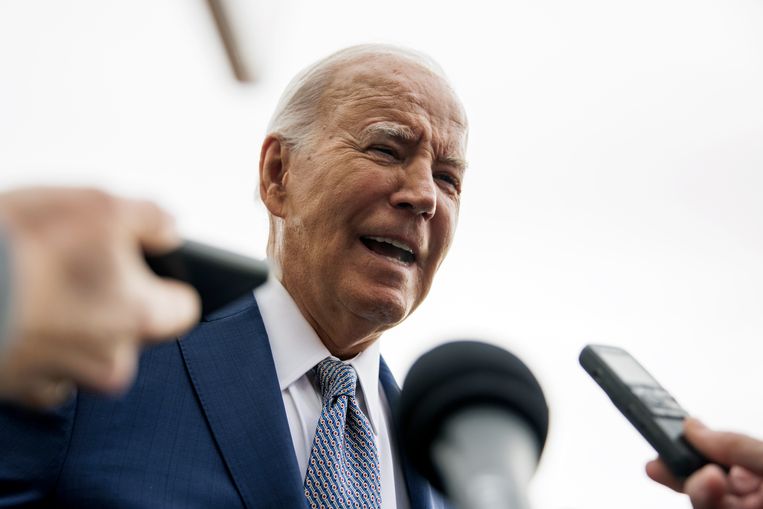What role will deepfake technology play in elections around the world this year, which will see more than two billion people head to the polls? A popular audio clip purporting to be of US President Joe Biden is sparking controversy.
“You know how important it is to vote Democrat. It is important that you save your vote for the November election. Voting this Tuesday will only strengthen Republicans in their fight to re-elect Donald Trump. “Your vote will make a difference in November, not this Tuesday.”
With this phone message from President Joe Biden, Democratic voters in New Hampshire were urged last weekend not to participate in Tuesday's primary. The fact that American voters receive phone calls from politicians via so-called “Robocall” and listen to a recorded message is not new. What's new, and even more troubling, is that this time a near-perfect copy of Biden's vote, generated entirely by artificial intelligence, was used.
Images, video and audio fragments generated by artificial intelligence are not new in themselves. However, 2024 looks to be particularly challenging, as more than two billion people in more than 60 countries around the world will head to the polls this year. The fake Biden quotes appear to be the first very concrete example of the potential for disinformation.
Robert Weissman, head of the US NGO Public Citizen, which defends the interests of American citizens, warned that “the moment for political deepfakes has arrived.” “Policymakers must hurry to put safeguards into place, otherwise we are headed toward electoral chaos.”
According to computer scientist Jeroen Bart, imitating voices via artificial intelligence is now easy, although the result is not always perfect. All it takes is a few minutes of high-quality audio clips. “For the Brussels studio, we recreated the voice of presenter Eva de Ruo based on two to three minutes of radio. That's all we needed.”
Vocal parts also have the advantage that many people do not yet have the reflex that may be false. “In the case of images, this was already around during the years of Photoshop and AI image generators,” says Bart. “With audio, you can also manipulate sound quality and more easily hide parts of images that don't match.”
With the European elections approaching in June, the European Union is also watching developments with suspicion. Foreign Minister Josep Borrell proposed a plan Tuesday evening to counter the expected influx of disinformation in the coming months, but freedom of expression must be reconciled with tackling blatant disinformation. Borrell mainly looks at “foreign manipulation and interference,” especially from Russia and China.
Very tight surveillance
Social media and AI companies themselves also say they are addressing the problem. A week ago, Sam Altman, CEO of ChatGPT developer OpenAI, laid out the actions his company plans to take in the coming months. In the coming weeks, images created via the OpenAI DALL-E generator will receive a digital watermark. The company is also prohibited from now on To develop chatbots that pretend to be real election candidates. On Monday, the account of a staffer for Democratic presidential candidate Dean Phillips, who developed a bot to chat with voters as if it were Phillips himself, was suspended.
However, Altman himself also indicated that he is not completely confident about 2024. He said: “It is good that we are worried and we will do everything we can to do as well as we can. We will have to monitor this very closely this year, with a very tight monitoring and feedback loop.
The question is whether all these well-intentioned initiatives can make a significant difference. When Republicans showed a dystopian video of America in chaos in April 2023 after Biden's potential re-election, the video included the small disclaimer “Made entirely with AI images.” But that did not prevent tens of thousands of Trump supporters from spreading the photos further.
“The quality of the images, and whether they are clearly fake or not, ultimately does not play a big role. The polarization is so great that it no longer matters much,” says Bart. “It's about the impression and the fact that a seed has been planted among viewers: with Biden would be a mess.” Moreover, seemingly noble initiatives like fact-checking often arrive too late anyway. “By then they will be halfway around the world.”
Thomas Winters, a postdoctoral researcher at the University of Leuven in the field of artificial intelligence, sees a particular need for greater media awareness and literacy. Bert agrees: “Regulating or banning software is not going to solve the problem. In terms of technology, the genie is out of the bottle. We have to keep showing what is possible, creating examples in controlled environments, etc.”
Whether things will progress at this pace in our country is another question. This year we will vote at all levels, the stakes are high, but will the parties tempt us too? “I don't know how effective that is,” Bart says. I think the impact is less in Belgium, because in our small country there is still a shorter distance between politicians and people. Any government or headquarters would quickly address something like this.”

“Creator. Award-winning problem solver. Music evangelist. Incurable introvert.”






More Stories
France’s left-wing bloc puts forward a candidate for prime minister: this is Lucie Castet
More than 2,500 arrested after massive student protests in Bangladesh
EU criticizes Israeli PM for distorting history, court ruling